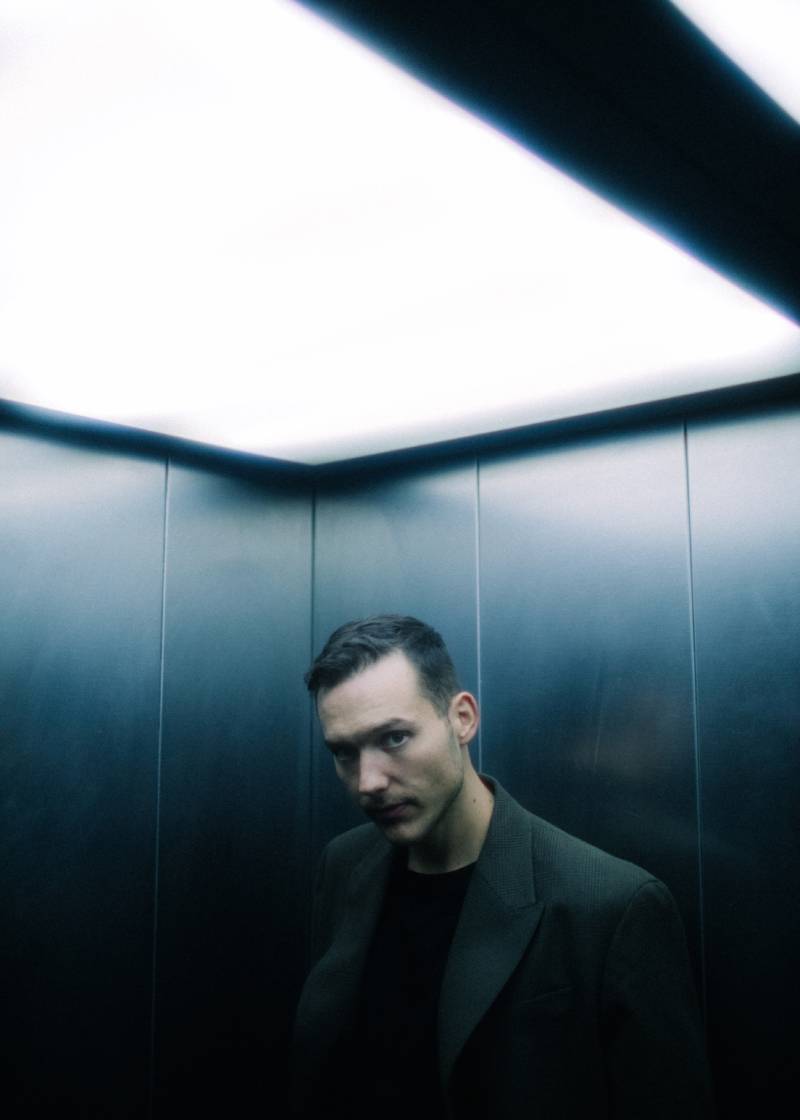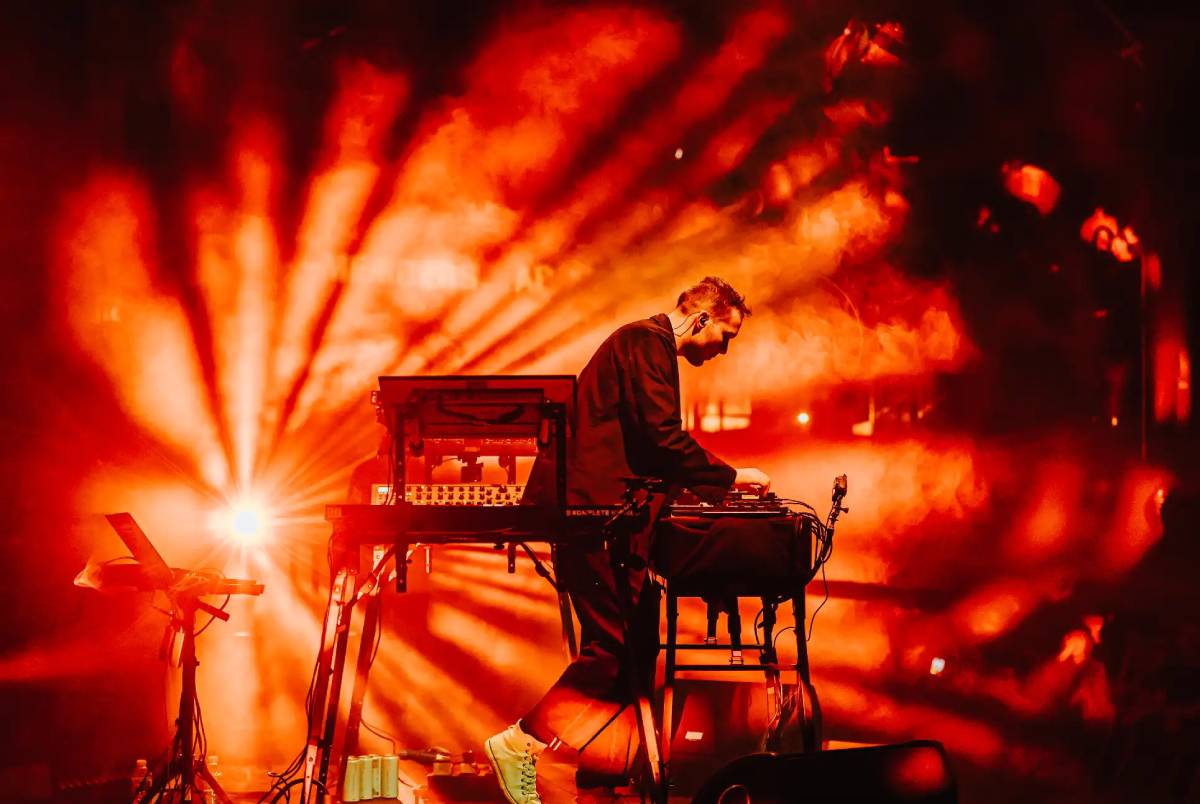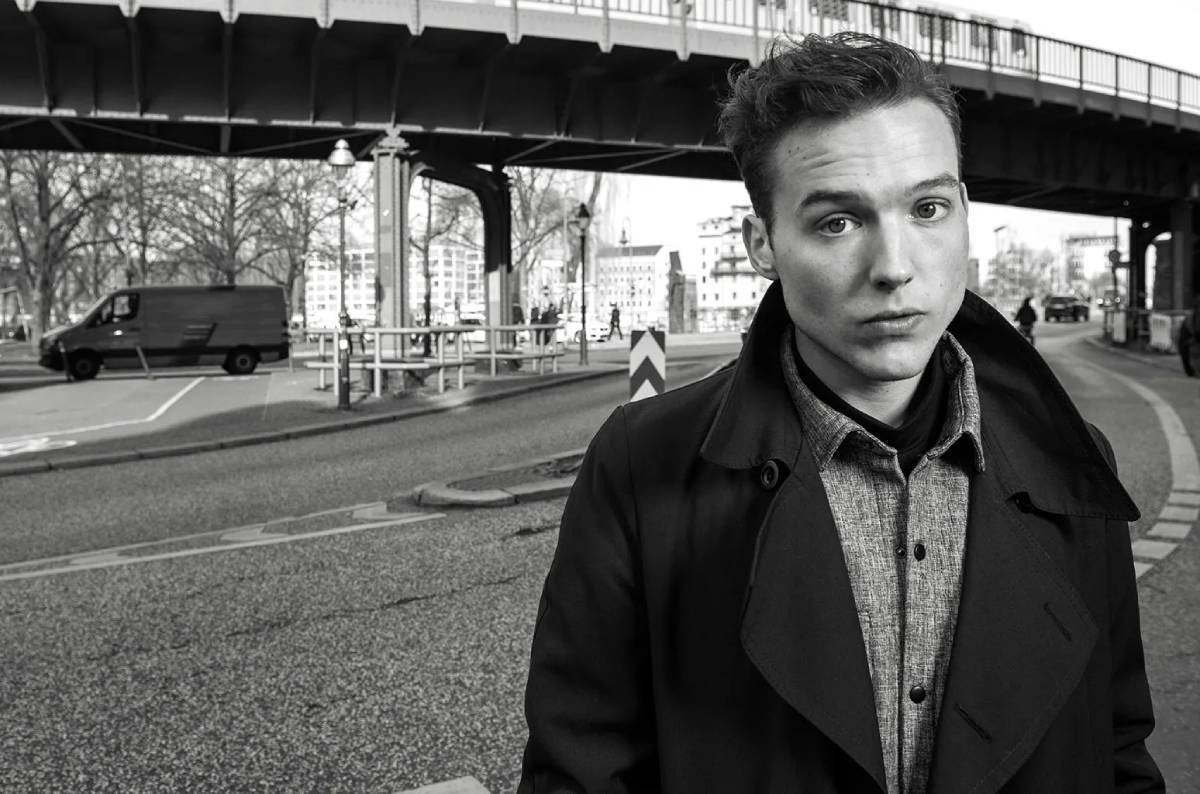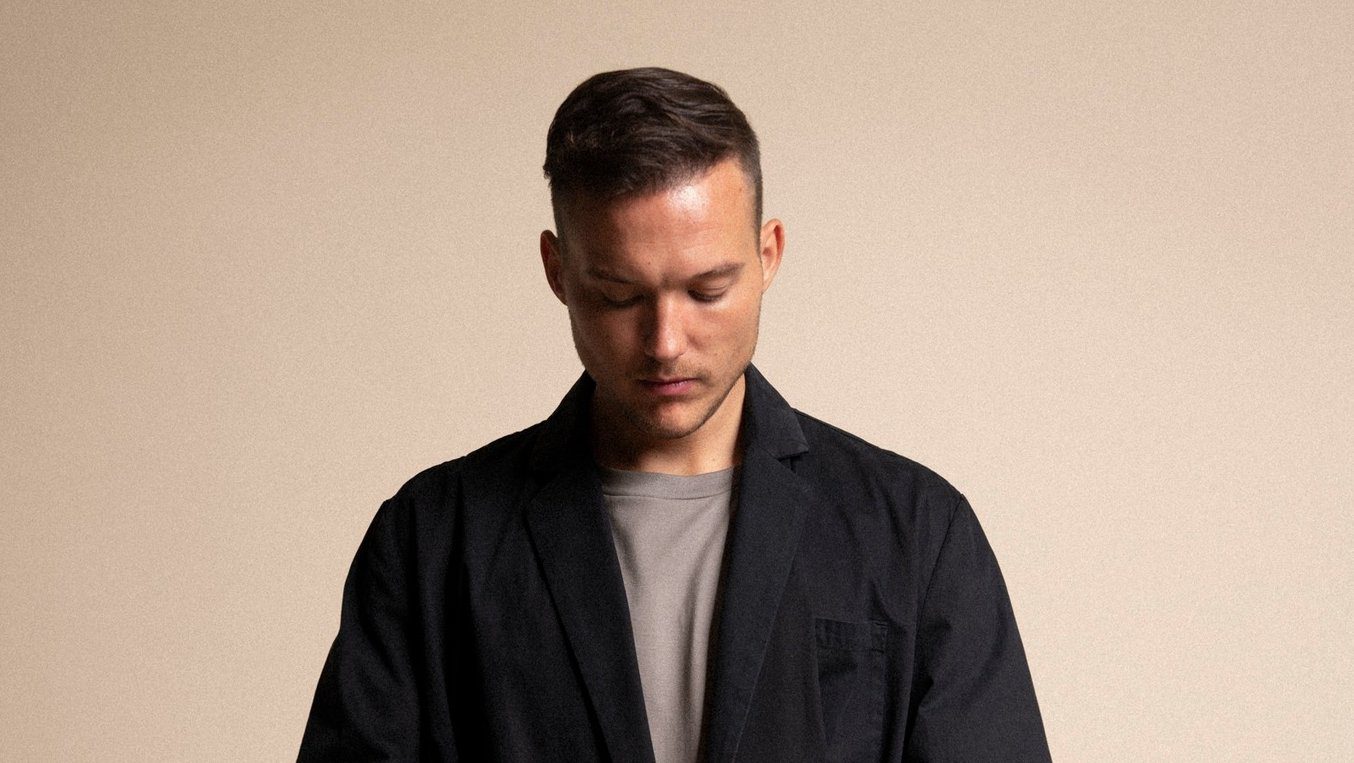Ben Böhmer si racconta: tromba, pianoforte, jazz ed elettronica. Musica ed arte visiva legati indissolubilmente.Tutto questo ha contribuito a creare uno degli artisti più eclettici dell’ultima decade.
Su Parkett siamo soliti proporre artisti che, in un modo o nell’altro, hanno avuto un forte impatto nella musica elettronica. Quello di Ben Böhmer è un nome che mi ha entusiasmato particolarmente. Sono totalmente convinto che sia uno dei talenti più cristallini all’interno del panorama musicale elettronico contemporaneo: la sua musica è ricca di influenze variegate ed esprime una concettualità ed una visione oltre gli standard.
Confrontarmi con lui era qualcosa che desideravo da tempo. Soprattutto dopo la chiacchierata con Fritz Kalkbrenner che ha speso non poche parole per questo ragazzo (impressionare una persona come Fritz Kalkbrenner, un veterano della musica elettronica, non è certo cosa da tutti), ho scavato nella discografia, ho cercato di comprendere il viaggio musicale ed emozionale che l’artista propone.
In occasione della sua ultima fatica discografica su Ninja Tune, abbiamo voluto scoprire l’universo di Ben Böhmer. Non c’è altro da aggiungere: ogni attesa è stata pienamente soddisfatta.
Ciao Ben, benvenuto su Parkett. Hai iniziato ad avvicinarti alla musica elettronica da giovanissimo. So che suoni sia il piano che la tromba. Cosa ti ha portato allora alla musica elettronica?
Il punto di partenza della mia avventura musicale può essere individuato nella città in cui sono nato, Gottinga. Il gruppo di amici di mio fratello maggiore era immerso profondamente nella scena musicale elettronica del posto (che stava rapidamente crescendo); e tutto questo gettò le basi per la mia esplorazione in questo mondo affascinante.
Man mano mi avvicinavo a un numero crescente di artisti ed etichette elettroniche, e il mio interesse per questo mondo si intensificò in modo esponenziale, soprattutto quando la nostra famiglia si trasferì a Berlino. La capitale tedesca, nota per il suo fervore culturale, si rivelò un terreno fertile per il mio interesse che si rivelava sempre più profondo giorno dopo giorno.

© Ben Böhmer. PH. Dan Medhurst
Musica elettronica e musica classica. Pensi che oggi queste due dimensioni musicali siano più vicine rispetto al passato?
Sento che ci sarà sempre un legame intrinseco tra di loro. Molti dei produttori elettronici che ho avuto l’opportunità di conoscere hanno radici nella formazione classica, e questa base influisce in modo persistente su qualsiasi direzione musicale intraprendano oggi.
Naturalmente ogni artista ha la sua individualità distintiva. Personalmente credo che le lezioni e le influenze che ho assorbito durante i miei anni di studio giovanile abbiano giocato un ruolo importantissimo nella mia musica. Questi elementi formativi continuano a plasmare la mia percezione e la mia creazione musicale ancora oggi.
Quello che mi piace del tuo sound è il fatto che presenta sempre una grande componente emotiva. E in questo vedo l’influenza dei tuoi studi classici. Penso ad esempio a Miles Davis.
Non riesco a identificare un artista specifico che abbia influenzato profondamente il mio percorso musicale, piuttosto riconosco che ci sia stato un momento fondamentale per me: quando ho cominciato a dedicarmi allo studio del pianoforte jazz. Ho provato una sorta di ribellione verso le restrizioni del pianoforte classico e le sue metodologie di apprendimento.
Il pianoforte jazz, grazie anche alla guida del mio insegnante, ha effettivamente spalancato i miei occhi sul vasto mondo delle possibilità offerto dall’improvvisazione. È stato un momento di rivelazione che ha segnato profondamente il mio percorso musicale.

Ben Böhmer
Un grande filosofo considerava la musica l’autentica forma d’arte, capace di esprimere al meglio l’idea di bellezza. Esiste un limite tra emozione e sentimento?
È davvero complicato esprimere questo concetto in modo semplice e chiaro. Sono fermamente convinto che la musica rappresenti uno degli strumenti più efficaci per amplificare e rendere tangibili le emozioni e i sentimenti, sia quelli positivi che quelli negativi. È una sorta di ponte, uno strumento straordinario che consente di connettersi in modo profondo con quei pensieri che altrimenti potrebbero sfuggire.

Ben Böhmer
A questo proposito, penso che il set che hai proposto per Cercle nel 2020 sia stato pazzesco. La musica penetra completamente la natura e la avvolge.
È stato assolutamente pazzesco, e finora è uno dei momenti più memorabili della mia carriera (ride, ndr). La mattina dello streaming è stata veramente stressante, data la complessità di fattori che avrebbero potuto influenzare l’intera esibizione, ma per fortuna ogni dettaglio è stato gestito senza intoppi.
Un aspetto che non molti sanno di me è la mia paura dell’altezza. Se non avessi avuto il live set su cui concentrarmi, l’ansia nell’affrontare quelle altitudini sarebbe stata talmente forte da non riuscire a farmi muovere i piedi da terra.

Ben Böhmer
Spesso gli artwork dei tuoi brani sono delle vere proprie opere di arte astratta. Pensi che questa scelta estetica possa comunicare l’essenza della tua musica?
Ad essere onesti, questi lavori non solo collegati alla mia musica. È proprio lo stile delle opere d’arte che mi piace, mi affascina.
Ho intenzione di continuare a far evolvere nel tempo anche questo aspetto, ma prevedo che rimarrà saldamente orientato verso un’estetica e uno stile simili.
La tua ultima pubblicazione è “One Last Call” con Felix Raphael. Questa traccia segna il tuo ingresso in Ninja Tune. Perché hai deciso di intraprendere il cammino con questa label?
Ho sempre coltivato un immenso rispetto per Ninja Tune come etichetta nel corso del tempo, soprattutto perché rappresenta la casa di alcuni dei miei artisti elettronici preferiti, tra cui spiccano nomi come Bonobo, Bicep, TSHA, The Cinematic Orchestra e Odesza.
Il fatto di avere l’opportunità di condividere la mia musica attraverso la loro piattaforma rappresenta per me un enorme privilegio, un momento straordinario che valorizza e sottolinea la mia connessione con un contesto musicale che ammiro profondamente. Sono entusiasta.
Vuoi darci qualche spoiler sui tuoi progetti futuri?
Purtroppo non posso farlo (ride, ndr) ma chiunque sia stato tra i miei fan e abbia assistito alle mie esibizioni dal vivo recentemente avrà sicuramente notato che ho provato alcune nuove tracce.
Mi auguro di poterle pubblicare quanto prima, il prossimo anno probabilmente. Non vedo l’ora che tutti possano immergersi in questo mio nuovo viaggio musicale.

© Ben Böhmer. PH. Erik Weiss
ENGLISH VERSION
Ben Böhmer tells his story: trumpet, piano, jazz and electronics. Music and visual art are inextricably linked. All this has contributed to creating one of the most eclectic artists of the last decade.
On Parkett we usually feature artists who, in one way or another, have had a strong impact on electronic music. Ben Böhmer is a name that particularly excited me. I am totally convinced that he is one of the most crystalline talents within the contemporary electronic music panorama: his music is rich in varied influences and expresses a conceptuality and vision beyond the standards.
There are several reasons for this. I’ m firmly convinced that he is one of the most crystalline talents in the contemporary electronic music scene; his music is infused with diverse influences and conveys a conceptual depth and vision that transcends the norm.The longing to engage in a conversation with him had been growing within me for some time.
Following a discussion with Fritz Kalkbrenner – who had nothing but praise for Ben – this name became synonymous with quality. (Impressing someone of Fritz Kalkbrenner’s stature, a veteran in electronic music, is certainly an accomplishment not everyone attains.) I delved into Ben’s discography, seeking to comprehend his musical and emotional journey.
With the release of his latest album on Ninja Tune, we wanted to discover the universe of Ben Böhmer. There is nothing else to add: every expectation was fully satisfied.
Hi Ben, welcome on Parkett. I know you started to approach electronic music at a very young age. I know you play both the piano and the trumpet. What then brought you to electronic music? Was it a natural evolution?
It really started in my hometown of Göttingen. My older Brother’s friendship group were pretty involved with the local electronic music scene.
It was then that I started to get exposed to more and more electronic artists and labels and that accelerated when we moved to Berlin.
A question that I often ask myself is what could be the link between electronic music and classical music. Do you think that today these two musical dimensions are closer than in the past?
I think they are always going to be linked in some ways. So many electronic producers I know are classically trained so those initial influences are always going to permeate through whatever music they make today.
Every artist is different of course but I really value the things I picked up when I was younger.
What I like about your sound is the fact that they always have a great emotional component. It almost seems like they want to tell about emotions. And in this I see precisely the influence of your classical studies. Are there any influences? I’m thinking of Miles Davis for example.
I don’t think I have one specific artist but when I first started learning the Jazz piano that was a real breakthrough moment for me.
I hated the restrictions of classical piano and learning scales. Jazz piano and the teacher I had then really opened my eyes to what was possible through improvisation.
A great philosopher considered music to be the authentic form of art: able to best express the idea of beauty. Is there a limit between emotion and feeling? And what role does music play in all this?
It’s hard to say but what I do believe is that music is one of the best tools to heighten emotions and feelings, whether in a positive or negative way. It’s a great way of connecting to those thoughts.

© Ben Böhmer. PH. Dan Medhurst
In this regard, I think that the set you proposed for Cercle in 2020 is perfectly on topic. Music completely penetrates nature and envelops it. I would like you to tell me your feelings about that particular Live set.
Crazy. To this day it remains one of the highlights of my career. The morning of the stream was incredibly stressful as there were so many factors that could of impacted the stream but thankfully it all went smoothly.
One thing that many people don’t know is that I’m afraid of heights. I think without having the live set to focus on I would have been a lot more anxious up there.
One thing that fascinates me a lot about your production is that from 2018 onwards, even on a visual level, it has always remained consistent. Often the artworks are works of abstract art. Do you think this art form can communicate the essence of your tracks?
To be honest it is not based on the music at all. It’s just the style of artwork that I really like. I will continue to evolve it but I think it will always be routed in a similar style and aesthetic.
Your latest release is “One Last Call” with Felix Raphael. This track marks your entry into the Ninja Tune roaster. Why did you decide to begin with this label? I know that there are some of the artists you appreciate the most, but I’m sure that the motivations concern something else as well.
I’ve always massively respected Ninja Tune as a label and it’s home to some of my favourite electronic artists including Bonobo, Bicep, TSHA, The Cinematic Orchestra and Odesza. To get the opportunity to release music with them is a massive privilege.
Do you want to give us some spoilers about your future plans?
I can’t just yet but any fans who have seen me live in recent months will know I’ve been trying out a few new songs. I hope to release those next year at some point.

Ben Böhmer
